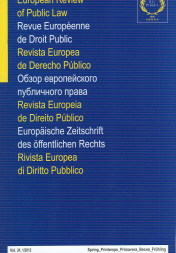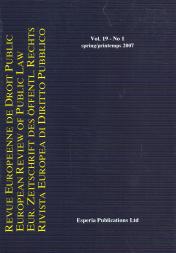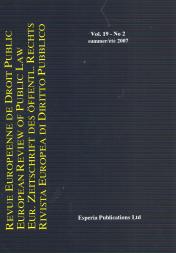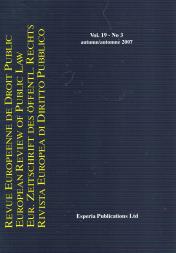
PRIVATE BANKS, SERVICES OF GENERAL INTEREST
AND PREVENTION OF MONEY-LAUNDERING WITH REGARD TO CORRUPTION
DIRECTIVE 2014/92/EU OF THE EUROPEAN PARLIAMENT AND OF THE COUNCIL,
OF 23 JULY 2014, AND ACCESS TO PAYMENT ACCOUNTS WITH BASIC FEATURES
JULI PONCE
Law Professor, Barcelona University. Email: jponce@ub.edu
The article deals with the reconsideration of public intervention in the financial sphere in connection with the concept of financial exclusion. Several EU Member States are establishing basic banking services with universal service obligations for private banks. The Directive 2014/92/EU, which must be adopted by 18 September 2016, is extending those universal service obligations to all EU Member States. The national banks will be obliged to offer payment accounts with basic features, which creates the right to open and use a payment account with basic features. The directive combines those provisions with some precautions in relation to money-laundering. The article finishes by considering if the banking activity should be understood as an economic service of general interest. It compares the EU situation with the US reality where banks have had legal obligations in relation to credit activity since the 70's. Finally, the article considers how ombudsmen could protect citizens' rights before private banks by developing services of general interest, taking into account the Catalan experience.
L'article traite de la reconsidération de l'intervention publique dans la sphère financière en relation avec le concept d'exclusion financière. Certains Etats membres de l'UE sont en train d'établir des services bancaires de base avec des obligations de service universel pour les banques privées. La directive 2014/92/UE, qui doit être transposée pour le 18 septembre 2016, étend ces obligations de service universel à tous les Etats membres de l'UE. Les banques nationales seront obligées de proposer des comptes de paiement avec des caractéristiques de base et cela crée le droit d'ouvrir et d'utiliser un compte de paiement avec des caractéristiques de base. La directive combine ces dispositions avec quelques précautions liées au blanchiment de fonds. L'article se termine en se demandant si l'activité bancaire doit être comprise comme un service économique d'intérêt général. Il compare la situation de l'UE avec les réalités aux Etats-Unis, où les banques ont des obligations légales liées à l'activité de crédit depuis les années soixante-dix. Enfin, l'article se demande si les médiateurs pourraient protéger les droits des citoyens face aux banques privées en développant des services d'intérêt général, compte tenu de l'expérience catalane.



















